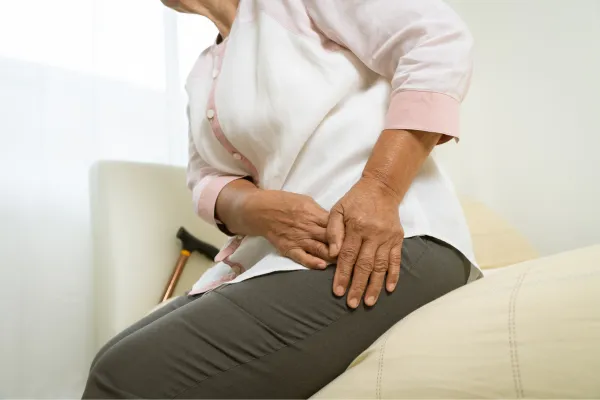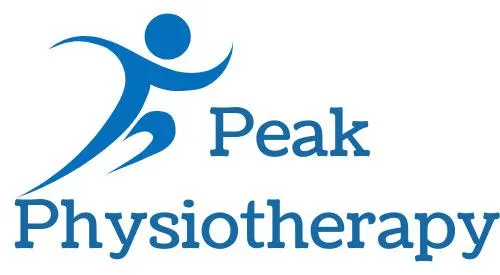
Understanding Hip Pain: Common Causes and Advanced Physiotherapy Solutions
Hip pain is a common condition that can range from mild discomfort to debilitating pain, limiting mobility and affecting daily activities. Whether you’re dealing with sharp pain, stiffness, or discomfort in your hips, it’s essential to understand the underlying causes and explore the most effective treatment options. At Peak Physiotherapy in Galway, we offer advanced physiotherapy solutions to help you manage and relieve hip pain, restore function, and improve your quality of life.
Common Causes of Hip Pain
Hip pain can occur for a variety of reasons, and it often involves the muscles, tendons, joints, or bones in and around the hip. Understanding the specific cause of your pain is crucial to determining the right treatment plan. Here are some of the most common causes of hip pain:
1. Osteoarthritis
Osteoarthritis (OA) is one of the most common causes of hip pain, particularly in older adults. OA is a degenerative joint disease where the cartilage in the hip joint wears down over time, leading to friction, pain, stiffness, and inflammation. This can make movements like walking or climbing stairs difficult and painful.
2. Hip Bursitis
Bursitis refers to the inflammation of the fluid-filled sacs (bursae) that cushion the hip joint. The most common type of hip bursitis is trochanteric bursitis, which affects the outer part of the hip. This condition causes pain when moving or touching the affected area and is often a result of repetitive motion or overuse.
3. Tendonitis
Tendonitis occurs when the tendons around the hip become inflamed or irritated, often due to overuse, injury, or excessive strain. The hip flexor tendons and the gluteal tendons are commonly affected, leading to pain when bending, stretching, or during physical activity.
4. Labral Tears
The hip labrum is the cartilage that helps hold the ball of the hip joint in place. Tears to this cartilage, often caused by repetitive motion or trauma, can lead to pain, instability, and limited range of motion. Labral tears can occur from sudden injury, but they may also develop gradually due to wear and tear over time.
5. Hip Fractures
Hip fractures typically occur in older individuals due to falls or accidents. A fracture in the hip can cause immediate and severe pain, swelling, and bruising. Hip fractures often require surgical intervention, followed by physiotherapy to regain strength and mobility.
6. Piriformis Syndrome
Piriformis syndrome occurs when the piriformis muscle, which is located in the buttocks, irritates the sciatic nerve, leading to pain in the hip, buttocks, and down the leg. This condition is often linked to prolonged sitting or overuse, and it can cause discomfort when walking or standing.
Advanced Physiotherapy Solutions for Hip Pain
At Peak Physiotherapy, we focus on providing personalized, advanced treatment strategies to help you manage and recover from hip pain. Here are some of the most effective physiotherapy solutions we offer:
1. Manual Therapy
Manual therapy involves hands-on techniques such as massage, joint mobilization, and soft tissue manipulation. These techniques help relieve muscle tightness, improve circulation, and restore joint mobility. Manual therapy can be especially effective for conditions like hip bursitis, tendonitis, and labral tears.
2. Exercise Therapy
Exercise is a cornerstone of physiotherapy for hip pain. A tailored exercise program can help strengthen the muscles around the hip joint, improve flexibility, and increase range of motion. Specific exercises will target the hip flexors, glutes, and stabilizing muscles to reduce pain and prevent future injuries.
3. Stretching and Mobility Exercises
Stretching and mobility exercises are essential for improving flexibility in the hip joint and surrounding muscles. Physiotherapists may use techniques like dynamic stretches, passive stretches, and active range-of-motion exercises to help alleviate stiffness and improve mobility, especially for conditions like osteoarthritis or labral tears.
4. Modalities for Pain Management
Physiotherapists may also use various modalities to help manage pain and inflammation in the hip. Techniques such as heat and cold therapy, ultrasound therapy, or electrical stimulation can reduce swelling, promote healing, and relieve discomfort associated with hip pain.
5. Postural and Ergonomic Education
Poor posture or improper body mechanics can exacerbate hip pain. Physiotherapists will educate you on how to improve your posture during daily activities and exercises, including proper sitting, standing, and lifting techniques to reduce stress on the hips and prevent future pain.
6. Sports and Activity Modifications
For athletes or active individuals, physiotherapists will provide advice on how to modify certain activities to prevent further strain on the hip joint. This may involve adjusting your training routine, changing your posture during exercise, or incorporating more low-impact activities like swimming or cycling.
7. Functional Rehabilitation
In cases of severe pain or following surgery, functional rehabilitation may be required. This involves a gradual return to regular activities with the goal of restoring strength, mobility, and function. Physiotherapists guide you through this process to ensure proper recovery and prevent setbacks.
When to Seek Physiotherapy for Hip Pain
If you’re dealing with ongoing or recurring hip pain, seeking professional help is important to prevent further damage and improve your quality of life. Physiotherapy can effectively treat many causes of hip pain, including degenerative conditions, tendonitis, and hip fractures. Our team at Peak Physiotherapy in Galway will work with you to create a treatment plan that targets the root cause of your pain, helping you regain mobility and enjoy your daily activities without discomfort.
Conclusion
Hip pain can be a frustrating and limiting condition, but with the right physiotherapy treatment, it’s possible to manage pain, restore function, and prevent future problems. At Peak Physiotherapy in Galway, we specialize in advanced solutions that address the underlying causes of hip pain and help you achieve lasting relief. Contact us today to schedule a consultation and start your journey toward a pain-free life.



